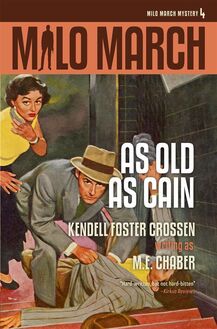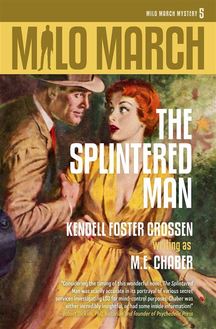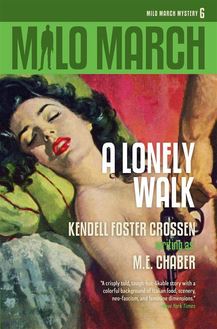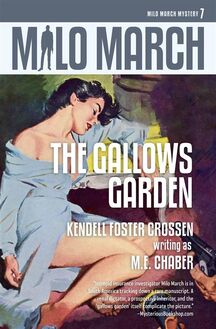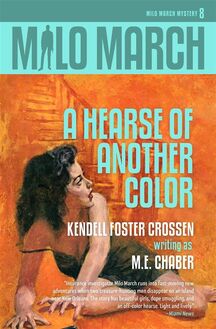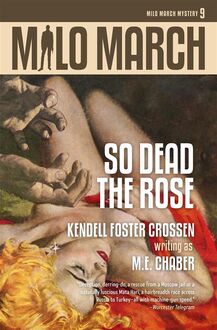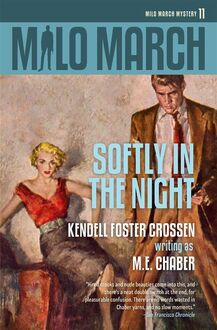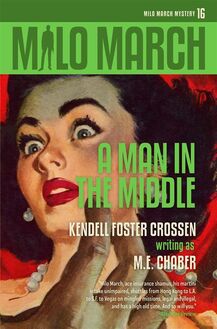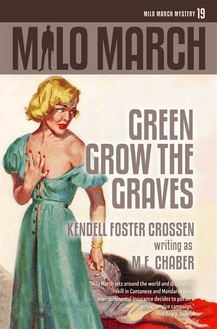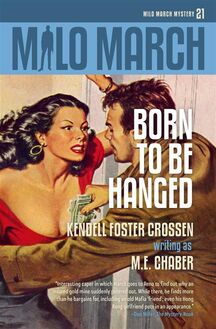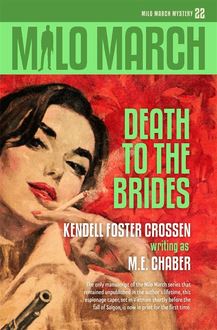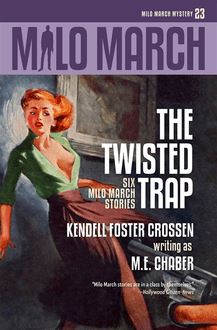-
 Univers
Univers
-
 Ebooks
Ebooks
-
 Livres audio
Livres audio
-
 Presse
Presse
-
 Podcasts
Podcasts
-
 BD
BD
-
 Documents
Documents
-
- Cours
- Révisions
- Ressources pédagogiques
- Sciences de l’éducation
- Manuels scolaires
- Langues
- Travaux de classe
- Annales de BEP
- Etudes supérieures
- Maternelle et primaire
- Fiches de lecture
- Orientation scolaire
- Méthodologie
- Corrigés de devoir
- Annales d’examens et concours
- Annales du bac
- Annales du brevet
- Rapports de stage
La lecture à portée de main
Vous pourrez modifier la taille du texte de cet ouvrage
Découvre YouScribe en t'inscrivant gratuitement
Je m'inscrisDécouvre YouScribe en t'inscrivant gratuitement
Je m'inscrisEn savoir plus
Vous pourrez modifier la taille du texte de cet ouvrage
En savoir plus

Description
Sujets
Informations
| Publié par | Steeger Books |
| Date de parution | 26 septembre 2020 |
| Nombre de lectures | 0 |
| EAN13 | 9791220200301 |
| Langue | English |
Informations légales : prix de location à la page 0,0012€. Cette information est donnée uniquement à titre indicatif conformément à la législation en vigueur.
Extrait
Uneasy Lies the Dead
by
Kendell Foster Crossen
Writing as M.E. Chaber
Steeger Books / 2020
Copyright Information
Published by Steeger Books
Visit steegerbooks.com for more books like this.
©1992, 2020 by Kendra Crossen Burroughs
The unabridged novel has been lightly edited by Kendra Crossen Burroughs.
All rights reserved. No part of this book may be reproduced or utilized in any form or by any means, electronic or mechanical, without permission in writing from the publisher. The scanning, uploading, and distribution of this book via the Internet or via any other means without the permission of the publisher is illegal and punishable by law.
Publishing History
Hardcover
New York: Holt, Rinehart & Winston, January 1964. Dust jacket by Ben Feder, Inc.
Toronto: Holt, Rinehart & Winston of Canada, 1964.
London: T.V. Boardman (American Bloodhound Mystery #470), 1964.
Paperback
New York: Paperback Library (63-328), A Milo March Mystery, #8, May 1970. Cover by Robert McGinnis.
Dedication
For the one and only—Lisa
One
It was a nice little club on Euclid Avenue in Cleveland, Ohio. You know the kind—with dim lights, fancy furnishings, and stiff prices. The attraction, as far as I was concerned, was a blues singer named Lola Crane. She was about five feet seven and a hundred and twenty pounds. Every pound of it was in just the right place. Her hair was honey-colored. She had the kind of voice that makes your throat tighten up when you hear it. I’d discovered her by accident the second night I was in Cleveland. I’d been back several times, but this was the first night I could relax and really enjoy it.
The name’s March. Milo March. I’m an insurance investigator with my own office in New York. I’d been in Cleveland a week, working for the Security Insurance Company. It was a small outfit that gave me a job maybe once a year. This time it had been some broad who had killed her husband and thought she was going to collect his insurance.
She might have gotten away with it, too, if she’d been a little more patient. He had been listed on the police files as a victim of a hit-and-run accident. That meant the company paid double. They resigned themselves to their fate and were about to pay off. Then, about two weeks after the accident, a clerk for the insurance company drove down her street on his way home from a night out with the boys. It was three o’clock in the morning. It just happened that he was the clerk who was processing her claim. It also happened that he was ambitious. So he noticed the lights on in her house and thought he saw a couple dancing in the living room. He didn’t think that was the way for a brand-new widow to act, so the next morning he reported it.
The company didn’t get excited, but they asked a few questions. The widow said there wasn’t any party; it was just that she was so upset she had to call her doctor. He verified that he’d been there and said he’d had to give her a sedative. The only thing that bothered the company, after they thought about it for a while, was that he was the same doctor who had signed the death certificate. They got a court order and had the body dug up and an autopsy performed. The husband had been killed by a car, all right—he’d been run over three or four times—but he was also full of enough morphine to have kept him unconscious for a week. The company called me.
It had taken me a week to wrap the case up, and the doctor and the lovely widow were both locked up. The company was so grateful they gave me a thousand dollars over my fee of seven hundred. That had made me so grateful that I decided to spend part of it in Cleveland before catching the plane the next morning. So there I was at the Hideout, drinking V.O. at a buck and a half a shot and letting Lola Crane’s voice send shivers up and down my spine.
She was just finishing her final number when I beckoned the waiter.
He hurried over. “Another one, sir?” he asked, reaching for my glass, which was still half full.
“In a moment,” I said. “Ask Miss Crane if she’ll join me for a drink.”
He shook his head. “I don’t think she will, sir. She doesn’t do that sort of thing.”
“Why don’t you ask her and find out,” I suggested. I slid a five-dollar bill across the table.
He hesitated a second, then scooped it up. He turned and went to meet her.
I was pretty sure she’d come. It wasn’t that I thought I was irresistible; I was sure that curiosity would get to her. I had sat at that same table alone every night I’d been in Cleveland. It was near enough to the small stage so that she couldn’t have helped seeing me.
I’d been right. She listened to the waiter and then came directly to my table. I got to my feet.
“I’m glad you came, Miss Crane,” I said. “I wanted to tell you how much I’ve enjoyed your singing. Won’t you join me for a drink?”
“Thank you,” she said.
I went around and held the chair for her. She sat down and I suddenly found myself looking down over her shoulder. It was a lovely view. It answered one thing I’d been wondering. Only nature had ever made anything like them.
I couldn’t think of an excuse for lingering, so I went back to my chair. “My name is Milo March,” I said.
“Hello,” she said with a smile.
The waiter came over and I looked at her.
“Bourbon and water,” she said.
I ordered it for her and another V.O. for myself. Then I turned back to her.
“You’ve been here almost every night for a week,” she said. “Why?”
“I’ve told you. I think you’re one of the most exciting singers I’ve heard in a long time.”
“That’s very nice to hear, but I’ve been here for two months. How come it took you so long to discover me?”
“I’m from New York. I just arrived in Cleveland a week ago. I happened to wander in here the first night and liked what I heard—and saw. So I’ve come back. I’m leaving tomorrow, and I thought I’d tell you how much I liked your singing before I left.”
The waiter arrived with the drinks.
“Too bad you’re not a talent scout,” she said with a smile. “I could use a little discovering. But it’s sweet of you to tell me anyway. Thank you.”
“To your being discovered,” I said solemnly, lifting my drink.
We drank to that and I looked her over again. She moved a little but it was with pleasure not embarrassment. And when I glanced at her face, there was amusement in her eyes as well as enjoyment.
“You have another show, don’t you?” I asked.
She nodded. “I can’t stay long because of that. I go on again in an hour, and I have to change and rest a few minutes.”
“Sure,” I said. “Maybe we can have another drink when you’re through.”
She gave me a long look from beneath her lashes. “Maybe,” she said. She finished her drink and stood up. “Thank you, Mr. March.”
“It was my pleasure,” I said. It was, too, especially when she turned and started to walk away. I watched until I lost her in the darker recesses of the club. Then I sat down and went back to my drink. It didn’t taste nearly as good as it had before.
I had almost finished it when I was aware that somebody was standing beside my table. I looked up. He was dressed like a waiter, but he certainly wasn’t one. His dinner jacket was bulging at the seams, especially under the left arm. His face looked as if he’d spent most of his life as a sparring partner for Sonny Liston.
“You,” he said, “the boss wants to see you.”
“Fine,” I said. “Send him over.”
“Nah. In the office.” He jerked his head toward the rear of the club.
“Who’s the boss?”
“You’ll see. You want to walk back or you want to be carried back?”
“Depends on who does the carrying. You’re not my type.” I stood up. “What’s the idea of all the strong-arm stuff?”
“The boss said he wanted to see you. What the boss says goes—one way or another. Start walking.”
We threaded our way back through the tables. At the rear of the room there were a few steps going up to another level. When I reached the top, there were two ways to go, so I stopped.
“Left,” he said.
I turned left and that brought me up in front of a door, a good strong door by the looks of it.
“Open the door and go in,” he said.
“Wouldn’t it be more polite to knock first?” I asked.
“Don’t be smart. Open the door and walk in.” He gave me a shove that almost removed the necessity of opening the door.
I filed it away in my memory and turned the knob. The door swung open and I walked into an office—some office. Everything was in white, the big thick rug, the walls and draperies, the desk and chairs, even the telephone. There was a man sitting at the desk, a well-built man with gray hair. He was also wearing a dinner coat, but his fitted him. He was smooth, a little too smooth.
“Here he is, boss,” the one behind me said.
Then I noticed something else. Directly in fron
-
 Univers
Univers
-
 Ebooks
Ebooks
-
 Livres audio
Livres audio
-
 Presse
Presse
-
 Podcasts
Podcasts
-
 BD
BD
-
 Documents
Documents
-
Jeunesse
-
Littérature
-
Ressources professionnelles
-
Santé et bien-être
-
Savoirs
-
Education
-
Loisirs et hobbies
-
Art, musique et cinéma
-
Actualité et débat de société
-
Jeunesse
-
Littérature
-
Ressources professionnelles
-
Santé et bien-être
-
Savoirs
-
Education
-
Loisirs et hobbies
-
Art, musique et cinéma
-
Actualité et débat de société
-
Actualités
-
Lifestyle
-
Presse jeunesse
-
Presse professionnelle
-
Pratique
-
Presse sportive
-
Presse internationale
-
Culture & Médias
-
Action et Aventures
-
Science-fiction et Fantasy
-
Société
-
Jeunesse
-
Littérature
-
Ressources professionnelles
-
Santé et bien-être
-
Savoirs
-
Education
-
Loisirs et hobbies
-
Art, musique et cinéma
-
Actualité et débat de société
- Cours
- Révisions
- Ressources pédagogiques
- Sciences de l’éducation
- Manuels scolaires
- Langues
- Travaux de classe
- Annales de BEP
- Etudes supérieures
- Maternelle et primaire
- Fiches de lecture
- Orientation scolaire
- Méthodologie
- Corrigés de devoir
- Annales d’examens et concours
- Annales du bac
- Annales du brevet
- Rapports de stage
